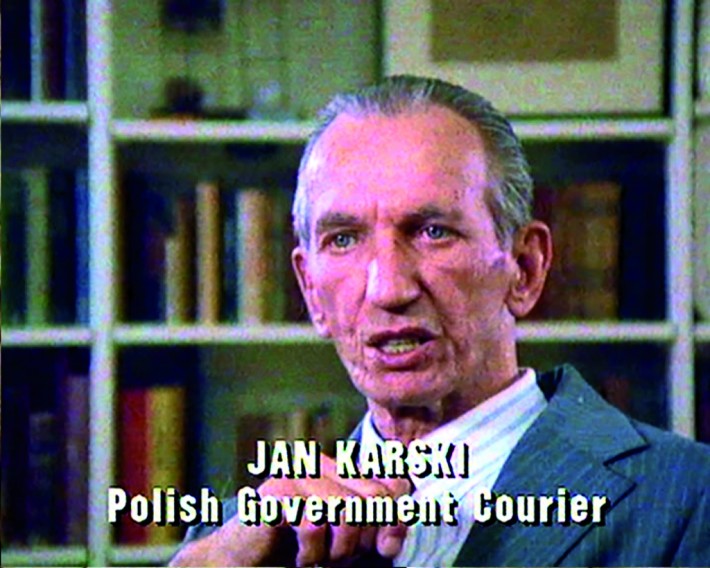Using, losing, resurrecting ‘A Different World’
In the meantime, Jeshajahu Weinberg, Museum Director of the United States Holocaust Memorial Museum in Washington D.C., asked me to consider becoming the Director of the Museum’s permanent exhibition. So I signed a two-year contract and left for Washington where, together with Weinberg, I chose the renowned New York designer Ralph Appelbaum to join me in bringing the permanent exhibition to life. The Museum opened its doors in April 1993, its long-term success exceeding the founders’ dreams. More than thirty-five million people have visited the permanent exhibition, and their comments are overwhelmingly positive.
What is not obvious, unless you look for it, is how much the exhibition’s method and style is rooted in the tradition of British documentary filmmaking. (One dramatic encounter, Ralph Appelbaum’s ‘Tower of Faces’, is the direct result of a sequence in A Different World.) The emphasis on the experiences of ‘ordinary people’, its segments, pacing, text and precise use of imagery and objects can be traced back to the forty-year old example set by Jeremy Isaacs with The World at War. That series is still on TV and is easily available in various formats. The Struggles for Poland is not. It has not been nationally repeated and was never available on VHS or DVD. A failure? Perhaps, but I haven’t been able to shake off the conviction that it’s a television history worth preserving, not just for Poles and Jews, but for anyone seriously interested in politics, genocide and the Holocaust.

Some fifteen years ago, The Struggles for Poland was marked down by its sales agent as, ‘obsolete.’ It was necessary because there’s an occasional archive shot or sequence that has a user license that lasted only ten years. Renewing such licenses is a time-consuming and expensive undertaking. Getting a new lease of life for the series on television, or for DVD release, seemed unachievable. It’s not like writing a book.
Yet since the series was transmitted, the Holocaust and genocide have found a place in Britain’s national curriculum and become a matter of educational concern across the world. I now see the Holocaust as a way of recognising that genocide has been and is a recurring feature of human behaviour. It’s a message every generation needs to hear.
I was musing about such things two years ago with Ralph Appelbaum. No, I’ll rephrase that. I was moaning that I couldn’t find any educational trust or sponsor willing to fund the clearances and technical costs of releasing even one film on DVD. A few weeks later I had the grant needed to make A Different World available in the twenty-first century.

 Learning on Screen
Learning on Screen